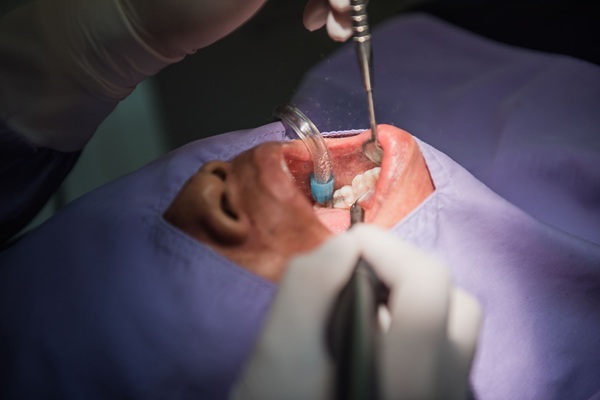 All new denture wearers face a period of adjusting to new dentures, and for many, speaking poses one of the most significant challenges. Fortunately, dentists can offer patients various tips to promote effortless speech.
All new denture wearers face a period of adjusting to new dentures, and for many, speaking poses one of the most significant challenges. Fortunately, dentists can offer patients various tips to promote effortless speech.
Why does adjusting to new dentures include speaking challenges?
Dentures tend to sit differently in the mouth compared with natural teeth. As a result, the tongue falls into new positions that lead to difficulties producing certain sounds and words. In addition, muscles in the face and jaw may move in new ways around prosthetics. These factors can lead to temporary speech changes.
What are some tips to improve speech after getting dentures?
Fortunately, most dental patients adjust naturally to speaking with dentures and re-master pre-denture speech quickly. Dentists can also offer various suggestions to facilitate the process.
Practice counting and reciting the alphabet
Saying numbers and letters aloud is an excellent way to practice shorter sounds and syllables that ultimately combine to create longer phrases. In addition, this exercise can serve as a starting point for improving speaking stamina.
Practice reading out loud
Patients who read books and newspapers aloud while adjusting to new dentures learn to position the tongue and mouth in ways necessary to produce complex sounds in succession. As with any exercise, the mouth and jaw muscles gradually strengthen, and speech becomes more fluid. Choosing text with challenging words, including tongue twisters or technical terms, is particularly beneficial.
Practice singing words
Singing allows new denture-wearers to produce words and sounds at a slower pace than speaking. As a result, individuals can more easily focus on where to position the tongue and activate muscles. In addition, singing allows denture wearers to sustain sounds while listening to determine which corrections lead to improved speech pronunciation.
Practice in front of a mirror
Speaking or singing in front of a mirror is an excellent way to help denture wearers see precisely how mouth and tongue movements affect speech. It can also reveal areas of facial tension that may signify that muscles are weak or overworking.
Perform cheek exercises
Many people experience facial soreness when speaking while adjusting to new dentures because dental prosthetics use previously underused muscles. Therefore, dentists recommend that patients begin facial exercises several weeks before getting new dentures to build facial muscle strength. For example, holding an exaggerated smile for several seconds can help strengthen the muscles necessary for fluid speech while wearing dentures.
Type using voice-activated software
Denture wearers can use speech recognition software programs to help detect incorrect diction and pronunciation. In addition, reading a text and reviewing its transcription can help measure progress by producing a record that reveals where improvement exists or is needed.
Converse with close friends or relatives
Dentists encourage new denture wearers to engage in conversations with close friends and relatives as much as possible during the adjustment period. In addition to promoting confidence from speaking at a conversational pace, patients with new dentures can count on receiving helpful feedback from those close to them.
Conclusion
Dentists can recommend various tips and techniques to help patients speak confidently while adjusting to new dentures. As a result, most people adapt quickly and experience noticeable improvement.
Request an appointment or call Carolina Smiles Family Dental at 828-884-3702 for an appointment in our Brevard office.
Recent Posts
Adjusting to new dentures can involve several changes to a person's routine. One thing that should stay the same, however, is regular dentist appointments. Here is what a new patient needs to know about the importance of dentist appointments and how often he or she needs to visit the dentist after receiving dentures.One commonly asked…
Getting new dentures can be a simultaneously exciting and daunting process. Although adjusting to new dentures takes some time and work, patients can immediately begin to enjoy the positive results of a full smile and a more rounded-out face. However, some aspects of adjustment may require a bit more practice. Chewing becomes somewhat different with…
Dentures can replace multiple missing teeth, restoring your confidence and ease of eating. Now that you have your smile back, the next step is adjusting to new dentures. How do you take care of your new smile.While dentures are not real teeth, you must care for them as attentively as real teeth. That way, they…


